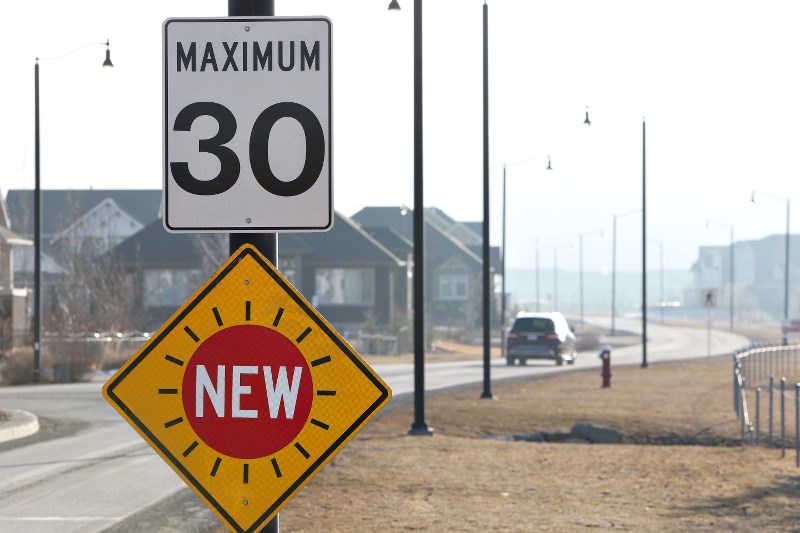The Town of Newmarket is forging ahead with a new 30 km/h speed limit on Lorne Avenue, but is easing up on any new public consultation regarding implementing that speed elsewhere in town.
Council committee of the whole voted today, May 30, to reduce the speed limit on Lorne between Eagle Street and Davis Drive from 40 km/h to 30 km/h, in conjunction with other traffic calming initiatives on the street.
But council opted against a staff recommendation to proceed soon with a public consultation campaign to introduce similar speed reductions elsewhere in town, instead requesting staff report back with more information first.
Mayor John Taylor proposed a delay and said he is not opposed to more roads with speed reductions, but he wants to manage community expectations.
“A lot of people will love this idea. We’re going to get everybody wanting 30 km/h on their street, and we’re going to have to set up a regime and a system of saying no,” Taylor said. “I’m not saying we shouldn’t do this, but if we think we’re going to have that town-wide and we can’t get the enforcement, people are going to be frustrated. I just think it’s quite complex.”
Town staff put forward the proposal after a provincial Highway Traffic Act amendment allowing municipalities to put 30 km/h speeds anywhere on their roads, versus only where they cross through parks. If council confirms the resolution at its meeting next week, that speed limit will come to Lorne, where the town will do a traffic calming demonstration to test new measures and gather data to inform policy — including how to implement lower speed elsewhere.
But rather than start consultations right away, Taylor said he would like more data.
Councillor Victor Woodhouse echoed the sentiment.
“We made a commitment on the council, we want to deal with speeding,” he said. “If it’s a matter of simply asking and bugging often enough (for speed limit reductions), whether it’s warranted or not, I don’t think it’s what we’re looking for.”
Councillor Bob Kwapis agreed but said the speed reduction does matter.
“The 10 km/h difference, it really does make a life and death difference,” he said. “High-vulnerability areas, those are the areas I’m always concerned about,”
Still, councillors have said other measures like bollards and painted shoulders have had an impact on speeds. Councillor Christina Bisanz complimented their impact in her ward later in the meeting and asked about getting them in place on the streets scheduled for them.
“I have only had accolades from residents about that, and I think it’s a measure that is very visible to people, but it appears to be working,” she said.
Taylor said reducing speeding is a strategic priority, and the town has done a lot of work on the file with measures like bollards.
But he said getting more citizens on board with reducing their speed when driving is also critical.
“It’s really costing York Regional Police (and) the town a lot of money to implement solutions,” Taylor said. “We’ll never be fully successful in our attempts, in our prioritization with speed, if we don't get the public to try and participate more and share the work with us.”



